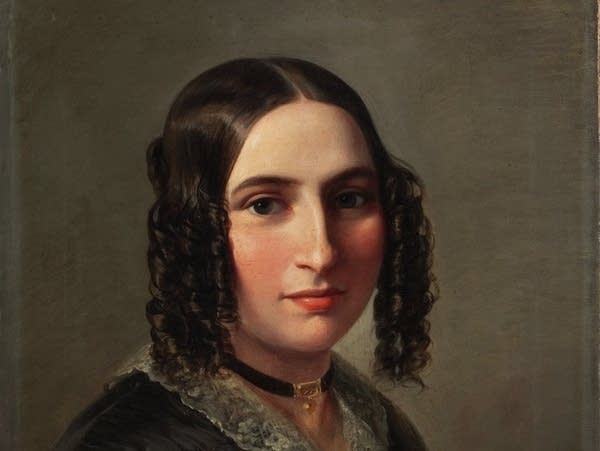Composer Fanny Hensel was the often-forgotten older sister of German composer Felix Mendelssohn. Considered to be one of the most important composers of the romantic era, Fanny Hensel's virtuosity on the piano equaled, if not even surpassed that of her brother.
Both young siblings received a broad education and by 1818, 9-year-old Felix and 12-year-old Fanny had begun their first compositions and had their first performances; young Felix's in public concerts and young Fanny's in front of private audiences. Felix Mendelssohn affectionately referred to Fanny as "Minerva," (Roman goddess of wisdom) for her superb musical and intellectual acumen. He'd always regularly submitted his compositions to his big sister's discerning musical eye and ear. And, he always took her critical advice to heart, even modifying or entirely cutting out anything she found questionable.
Even though Fanny Hensel may have had dreams of her own to pursue a life in music as her brother did, society at the time, prohibited women from pursuing musical professions. Even her father, who had supported her musical education throughout her upbringing, wrote an 1820 letter advising Hansel that while music may become her brother Felix's profession, for her "it can and must only be an ornament, never the basis of your being and doing".
Hensel did eventually settle into a prescribed domestic role after she married in 1829, but she continued playing and writing music. In time, she composed over 500 musical works. Hensel revived a family tradition of hosting Sunday musical salons in the 1830s, called the Sonntagsmusiken. These private, invitation-only events gave Hensel an outlet to perform and grow as a musician. She planned every concert as well as conducted and performed her own works. Attendees were often a who's who of Berlin's musical scene.
Fanny Hensel's only documented public performance took place when she performed her brother's First Piano Concerto for a charity benefit in February 1838. In the last year of her life, Hensel began having her works printed, becoming one of the first female composers to have their works published.
After her death in 1847, several of her other unpublished works were published by her brother, Felix and later by German publisher Furore Verlag. In 2014, author Larry Todd published, Fanny Hensel: The Other Mendelssohn a book about her remarkable life.
Love the music?
Show your support by making a gift to YourClassical.
Each day, we’re here for you with thoughtful streams that set the tone for your day – not to mention the stories and programs that inspire you to new discovery and help you explore the music you love.
YourClassical is available for free, because we are listener-supported public media. Take a moment to make your gift today.










